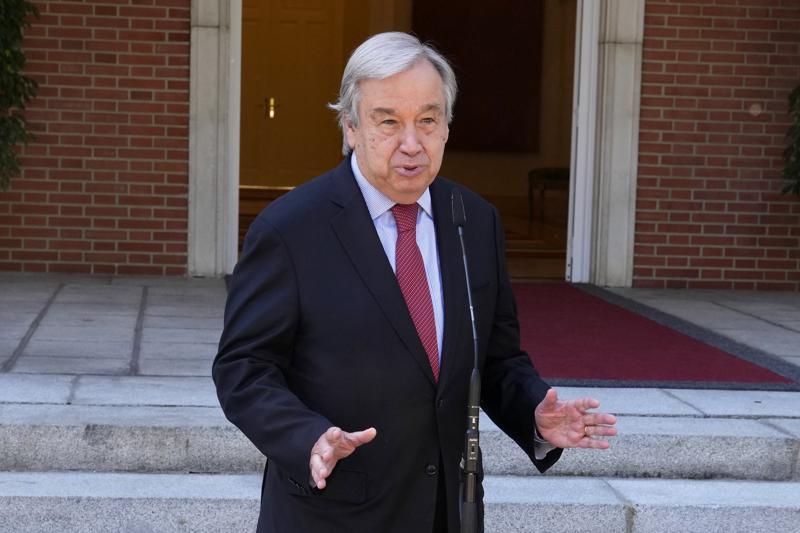World hunger worsened by climate change, conflict: UN Secretary General

UN Secretary-General Antonio Guterres on Monday warned that climate change and conflict are both a consequence and a driver of poverty, income inequality and food prices.
Guterres also told a meeting in Rome that the world’s food system generates a third of all greenhouse gas emissions. That same system is responsible for as much as 80% of biodiversity loss, he lamented in a video message.
The gathering was called to help prepare for a UN food systems summit to be held in September in New York.
Earlier this month, a UN report noted that up to 161 million more people faced hunger last year compared to 2019, with much of that widened suffering likely linked to the COVID-19 pandemic.
Poverty, income inequality and the high cost of food continue to keep healthy diets out of the reach of some 3 billion people,” Guterres said. “Climate change and conflict are both consequences and drivers of this catastrophe.”
The International Fund for Agricultural Development called on decision-makers to address the failures in food systems” that leave hundreds of millions of people poor and hungry. IFAD is a UN agency which aims to help small-scale farming.
IFAD said food systems must radically change to ensure access to affordable and healthy food, where food production protects the environment and biodiversity, and where people who produce our food are paid decently for their labour.” It added that the needs of rural people must be at the centre.
In 2020, as many as 811 million people faced hunger, according to the UN report earlier this month.
Guterres said the preparatory work in Rome will help set the tone for action this decade and for an “equitable and sustainable recovery from COVID-19.
Such efforts carry a substantial monetary price tag.
The chief economist of the Rome-based UN Food and Agriculture Organization has said that removing 100 million people from chronic undernourishment would need an additional $14 billion (nearly 12 billion euros) every year until 2030 and nearly triple that amount to achieve the UN goal of zero hunger by 2030.
According to UN projections, the goal will be missed by a margin of nearly 660 million people, with about 30 million of that figure possibly “linked to the pandemic’s lasting effects.
(Only the headline and picture of this report may have been reworked by the Business Standard staff; the rest of the content is auto-generated from a syndicated feed.)
 Dear Reader,
Dear Reader,
Business Standard has always strived hard to provide up-to-date information and commentary on developments that are of interest to you and have wider political and economic implications for the country and the world. Your encouragement and constant feedback on how to improve our offering have only made our resolve and commitment to these ideals stronger. Even during these difficult times arising out of Covid-19, we continue to remain committed to keeping you informed and updated with credible news, authoritative views and incisive commentary on topical issues of relevance.
We, however, have a request.
As we battle the economic impact of the pandemic, we need your support even more, so that we can continue to offer you more quality content. Our subscription model has seen an encouraging response from many of you, who have subscribed to our online content. More subscription to our online content can only help us achieve the goals of offering you even better and more relevant content. We believe in free, fair and credible journalism. Your support through more subscriptions can help us practise the journalism to which we are committed.
Support quality journalism and subscribe to Business Standard.
Digital Editor
business-standard.com

